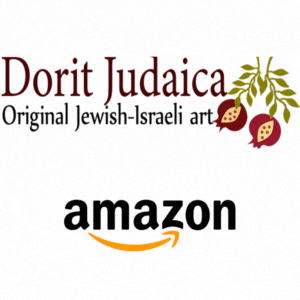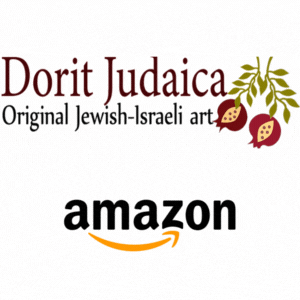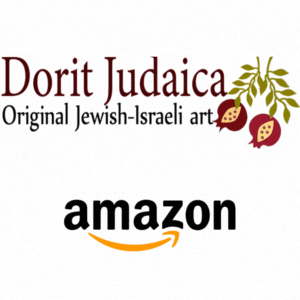What Can Happen Only If the Apple Falls From the Tree?
This week we are learning the laws of Tumas Ochlin — “food that becomes impure” in the Rambam. In short: Food items that were in contact with something impure, can become impure. But there are several conditions for this to happen. Written by Rabbi Gershon Avtzon • Full Article
This week we are learning the laws of Tumas Ochlin — “food that becomes impure” in the Rambam.
In short: Food items that were in contact with something impure, can become impure. But there are several conditions for this to happen. Firstly, the food must be separated from the place of its original growth. Secondly, it must come in contact with certain liquids after it was separated from its source. Thirdly, the contact with liquid must be with the intention of the owner. And finally, the liquid with which it comes in contact with also must be “detached” from its source wilfully, otherwise, this liquid will not make the food item susceptible to tumah.
Thus, the Rambam (13:5) rules that when a person immerses himself in water, the water on his body is considered to have been uprooted willfully. If, however, one passes through water — and did not intend to immerse in the water — the water on his body is not considered to have been willfully uprooted and cannot make food susceptible to tumah.
From these points, the Rebbe (29 Elul 5747) learns two important lessons:
1. Impurity only becomes a reality if we deviate from the natural order that Hashem designed. Just as a fruit that remains on the tree and is connected to its source does become impure, the same can be applied to all of creation: If we follow the will of Hashem as He directed us in the Torah, we will not fall into a state of impurity. It is only when we separate from the source of life and growth that we can fall to impurity.
2. The power of the Jew in this physical world. It is not just the reality of the world that creates impurity, it must come together with the knowledge and will of the Jew. Since the purpose of creation is that a Jew should make a dwelling place for Hashem, Hashem has granted the Jew free choice to either make that dwelling or, G-d forbid, enable impurity to enter the world. This should inspire each of us to use this power of ours only in a beneficial way.
A Halachic Source for a Fundamental Chassidishe Vort
At the end of these Halachos (Chapter 16), the Rambam writes everything the Torah teaches concerning the laws of ritual purity and impurity apply only with regard to entering the Beis Hamikdash, eating and handling korbanos, terumah, and ma’aser sheni which must all be eaten when they are tahor and the person eating them is tahor. However, it is permitted to eat ordinary foods that are impure and drink ordinary beverages that are impure.
At the same time, the Rambam continues to observe that Even though it is permitted to eat impure foods and drink impure beverages, the pious men of the early generations would partake [even] of their ordinary food in a state of ritual purity and would avoid all of the sources of impurity throughout their lives… [since] purifying one’s body leads to sanctifying one’s soul from wicked character traits.
On 19 Kislev 5745, the Rebbe pointed out that this halachah in Rambam is a halachic source for a well-known saying of Chassidim (Hayom Yom 25 Adar II):
“Reb Mordechai of Horodok once recalled: The first saying we heard from the Alter Rebbe when we came to Liozna was this: ‘What is forbidden is forbidden, and what is permitted is unnecessary.’”
“We worked on implementing this for three or four years until we internalized it in our own lives. Only then did we enter the Rebbe’s study for yechidus, to request his guidance in choosing a personal path in our Divine service.”
When Every Jew Must be Tahor
The Rambam (Ibid) adds: ‘All Jews — not only Shevet Levi who serve in the Beish Hamikdash — are warned to be pure one each of the three regalim (festivals of pilgrimage), because at that time, they must be ready to enter the Beis Hamikdash and partake of consecrated foods.”
This is also a tremendous lesson in our Avodas Hashem as we prepare for the imminent revelation of Moshiach and we anxiously anticipate our immediate entry into the third Beis Hamikdash: we must all be in the Yom Tov mode and act with additional holiness and purity. What may have been acceptable in earlier years, is not acceptable now as we are about to enter the Beis Hamikdash!
To bring this awareness into our lives — thus affecting the purity of our thoughts, speech and action — is only possible by learning about Moshiach. In the clear words of our Rebbe (Balak 5751): “The special increase in the study of the teachings of Torah concerning Geuah and Moshiach should…enable us to live with and ‘thrive’ on matters of Moshiach and Geulah.”
“This can be attained when one’s intellect is filled with the comprehension of the Torah concepts of Moshiach and Redemption. This intellectual awareness then extends to and permeates one’s emotions, and then translates into thought, speech and action consistent with this very auspicious period of time when we stand on the threshold of Redemption.”
49
Join ChabadInfo's News Roundup and alerts for the HOTTEST Chabad news and updates!










































